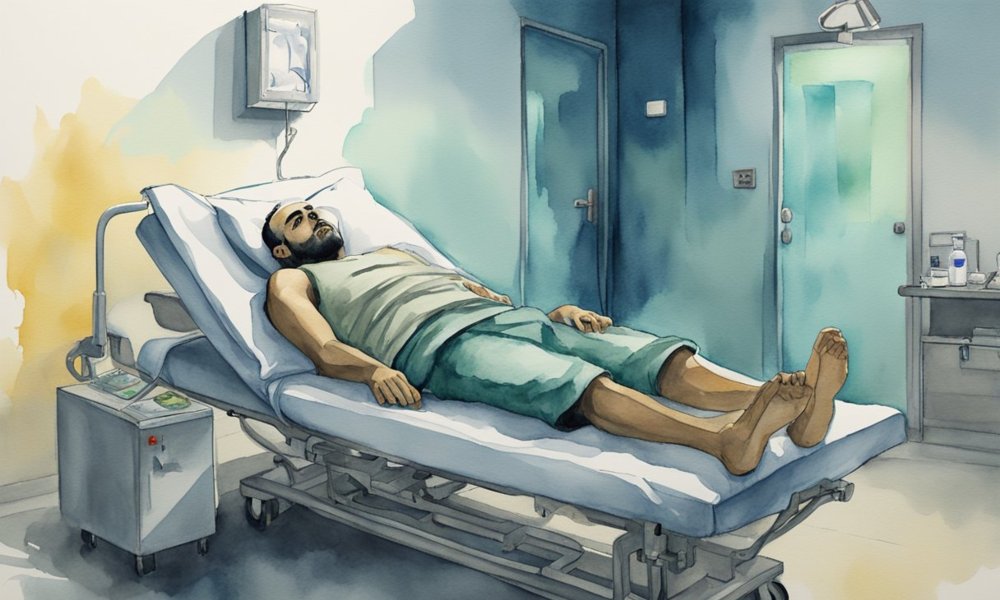Some Palestinian prisoners from Gaza were treated badly at an Israeli military hospital. Here are The key points:
- Prisoners were kept shackled (chained) to beds and blindfolded
- They were sometimes forced to wear diapers and left naked
- Medics say this treatment was like torture
But what happened? And why would the Israeli military do this? Let’s take a closer look.
Disturbing Reports from Whistle-Blowers
The story comes from whistle-blowers – medical workers who saw the disturbing treatment and spoke out. According to them, Palestinian detainees from Gaza were routinely:
- Handcuffed to hospital beds, with all four limbs tied down
- Forced to wear blindfolds the entire time
- Made to wear diapers instead of using a toilet
- Sometimes, they left completely naked
One senior medic called it “dehumanizing,” saying the prisoners were treated like “100% dependent” babies by the Israeli army officers in charge of them.
Army Responses and Excuses
When questioned, the Israeli army did not deny using restraints and diapers on the prisoners. However, they claim:
- Handcuffing was only done for high-risk security cases
- Diapers were used for patients with restricted movement after surgery
But the whistle-blowing medics disagree, saying the restraints and diapers were used on all patients regardless of mobility or threat level. One doctor asked, “If they can’t stand, why are they shackled? This is stupid.”
Ethical Concerns Around Treatment
Beyond just discomfort, the whistle-blowers raised serious ethical concerns about the prisoners’ treatment, especially:
- Being restrained during invasive medical procedures without knowledge
- Having painkillers allegedly withheld, causing unnecessary suffering
One medic described a case where a blindfolded prisoner underwent surgery without adequate pain medication, calling it “the line between treatment and assault.”
The military hospital was meant to resolve ethical issues around treating Palestinian captives. But the whistle-blowers say big problems remain.
Wider Geopolitical Tensions
This controversy comes amid high tensions between Israel and Palestinian militant groups like Hamas. After recent Hamas attacks, Israeli hospitals treated captured Hamas fighters alongside Israeli victims.
The allegations have sparked outrage from Palestinians, human rights groups, and others in the international community. Israel has strongly denied any wrongdoing and accused critics of unfair “moral equivalence” with terror groups.
The situation remains highly complex and divisive. With potential legal action ahead, the ethical treatment of detainees and prisoners of war will likely remain a major debate.
Closing Thoughts
The reports of restraint, deprivation, and excessive force against already-detained Palestinian prisoners are disturbing if true. Ethical questions remain around respecting human dignity and rights, even amid conflict. At what point do security measures cross moral lines? This appears set to become an increasingly contentious global issue.
















